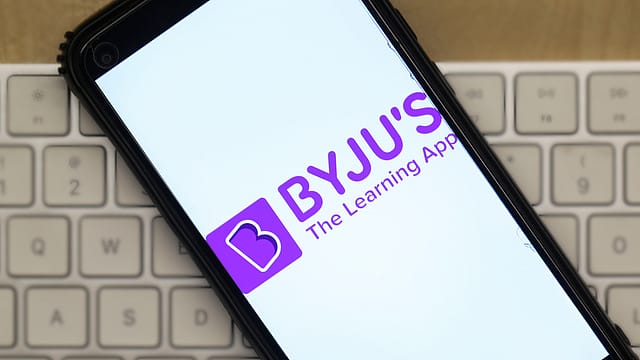A ‘crash’ course in valuations for Byju’s
ADVERTISEMENT

As anticipated, the meltdown in the public markets is making its way into private market valuations. The over 33% correction in tech-heavy Nasdaq in CY22 and the continued volatility in the markets in the current year are forcing investors to be conservative about the valuation of their investee companies.
In the first prominent markdown in valuation for the year of India-based unicorns, the world's biggest asset manager, BlackRock, which owns around 1% stake in Byju’s, has reportedly slashed the valuation of the ed-tech major from $4,600 a share in April 2022 to $2,400 a share as of December-end 2022. Blackrock, which manages over $10 trillion in assets, had first entered Byju’s roster of marquee investors at a $12-billion valuation in CY20. With the recent markdown, the valuation of the 2008-founded company has fallen nearly 50% from $22 billion to around $11.5 billion. However, the valuation is much more “respectable” than what Naspers-owned Prosus had valued the Bengaluru-based startup last year. The South Africa-based new age tech focussed investor had pegged the fair value of its 9.67% stake in the ed-tech’s parent, Think & Learn, at $578 million at the end of September quarter last year, valuing the company at $6 billion. Though the narrative spun around the markdown was that it was just an accounting treatment, valuing a unicorn’s stake at its fair value is indicative of the mounting challenges for the company since its last raise of $250 million in October 2022.
Byju’s, which is yet to reveal its 2021-22 financial numbers, had posted a massive loss of ₹4,588 crore in FY21, a 19-fold high over the previous fiscal, primarily driven by losses at WhiteHat Jr, a kids' coding firm that it had acquired in 2020 in a $300 million all-cash deal. The ed-tech firm, as of March 2022, had spent $2.5 billion in an acquisition spree that included Aakash Educational Services (test prep specialist), the US-based Epic, Tynker (kids' coding platform), Great Learning (professional education firm) and Toppr (exam prep platform). But the M&A spree bloated Byju’s overall workforce, prompting a move to lay off 5% of its overall workforce (2,500 roles) and a cut in its marketing budget in a bid to achieve profitability. Divya Gokulnath, the co-founder of Byju’s, had told Fortune India that the company would not be renewing its sports partnerships. The company, which has raised over $5 billion, has branding tie-ups with the Board of Control for Cricket in India, the International Cricket Council, and the Federation Internationale de Football Association.
With funding drying up on the back of a rate spree by foreign central banks, most investors have informed their portfolio companies to manage costs and extend their runway with existing capital. Byju’s had taken an unsecured ₹300 crore loan from its subsidiary, Aakash, to bolster its principal business activities. The company had mentioned that the advance was against “marketing activities and campaigns” that it had been running for Aakash, which it had acquired in a $950-million cash and stock deal in 2021. It was only by September 2022, that the ed-tech major could pay off the last tranche of $245 million(₹1,983 crore) to Blackstone, the owner of Aakash.
With interest rates trending higher, Byju’s has reportedly sought more time from lenders to renegotiate a $1.2 billion term loan B that it had raised in November 2021 at a Libor-plus floating rate of 550 bps. Though in a statement Byju Raveendran said that the ed-tech major was at a sweet spot of its growth story where unit economics and economies of scale were in its favour. Only recently it announced a switchover to a hybrid model. "We launched 300 hybrid learning centres last year and we plan to do 300 more this year," Gokulnath told Fortune India.